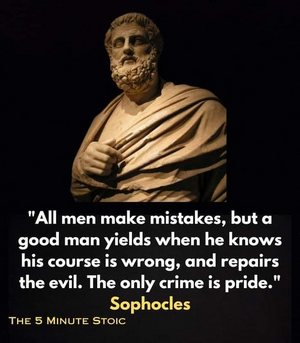In Ancient Greece, Socrates had a great reputation for wisdom. One day, someone came to find the great philosopher and said to him:
"Do you know what I just heard about your friend?"
"A moment," replied Socrates. "Before you tell me, I would like to test it with the three sieves."
"The three sieves?"
"Yes," continued Socrates. "Before you speak about others, it's important to take the time to filter what you mean. I call it the test of the three sieves. The first sieve is TRUTH. Have you checked if what you're going to tell me is true?"
"No, I just heard it."
"Very well! So, you don't know if it's true. Let's move on to the second sieve, that of KINDNESS. Is what you want to tell me about my friend something good?"
"Oh, no! On the contrary."
"So," questioned Socrates, "you want to tell me something negative about him, and you're not even sure it's true? Perhaps you can still pass the test of the third sieve, that of UTILITY. Is it useful for me to know what you're going to tell me about this friend?"
"No, not really."
"Therefore," concluded Socrates, "what you were going to tell me is neither true, nor good, nor useful. Why, then, did you want to tell me this?"

















